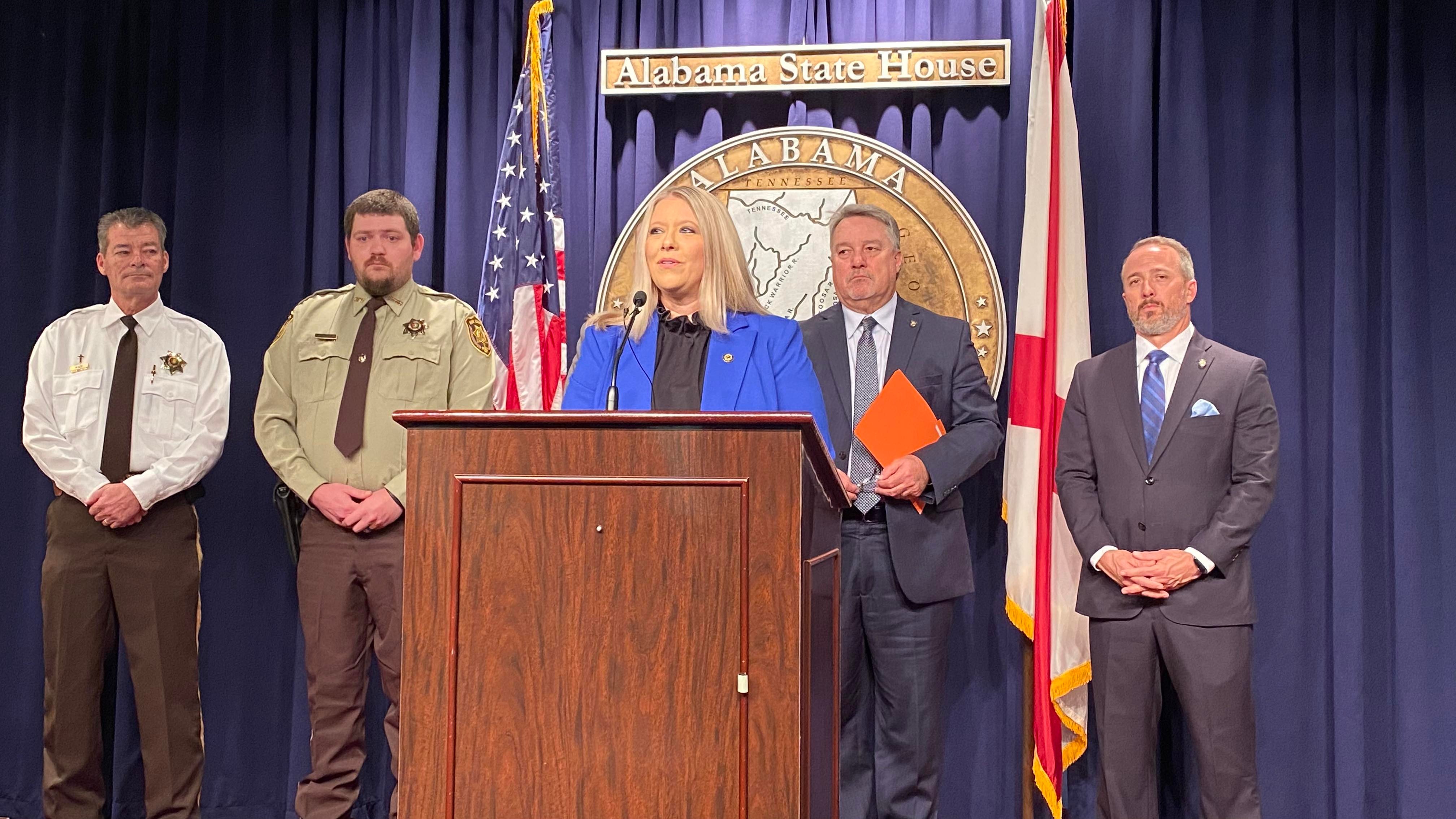A set of bills seeking to drastically reduce the amount of correctional incentive time, or “good time,” accrued by incarcerated individuals advanced out of their respective committees Wednesday.
Sen. April Weaver, R-Alabaster, and Rep. Russell Bedsole, R-Alabaster, are carrying the bills in each chamber, in response to the shooting death of Bibb County Sheriff’s Deputy Brad Johnson by a man who had been recently released on good time; Johnson died practically in Weaver’s driveway, she said in a press conference last month after pre-filing the bill.
Opponents to the bill acknowledged the tragedy, but expressed concerns about this bill as a proposed response.
“I think this bill is going considerably overboard to address and individual problem,” said Sen. Rodger Smitherman, D-Birmingham.
Smitherman said he had a conversation with someone who told him “we’re getting ready to have the largest uprising we’ve ever had when you pass this, because this is used to control discipline.”
Senate Minority Leader Bobby Singleton, D-Greensboro, said the bill could create overcrowding problems for the prison system.
“Your bill would keep a person sentenced to 10 years an additional 865 days,” Singleton said. “I don’t know what effect that would have with the federal government looking at us. There are no parolees getting out … If this incentive is not given, I can see some riots happening inside of our prison system. This is the only tool (the Department of Corrections) has to deal with some of these inmates.”
Singleton said he plans to bring a substitute bill on the floor that would compromise on the amount of days earned for good behavior.
Sen. Linda Coleman-Madison, D-Birmingham, asked whether this bill would have prevented Johnson’s death.
“Yes,” Weaver replied. He would have been in jail the day Deputy Johnson was shot.”
APR has previously reported that he man accused of Johnson’s murder, Austin Patrick Hall, was released on good time not because of the law itself, but because of multiple errors made in the administration of that law.
Weaver said she has had “three or four” in-depth conversations with ADOC about the bill and said the only thing ADOC Commissioner Jon Hamm brought to her attention was possible technical issues with the reporting.
However, Weaver said ADOC has not told her they supported the bill, but that the reporting issue is the only thing they had talked about in person.
Freshman Sen. Lance Bell, R-Ashville, argued that good time is expected in sentencing and that incentive time must be revoked.
“There are no consequences to being bad in prison,” Bell said.
Rep. Greg Albritton, R-Atmore, said he supports the bill and ultimately voted for it, but expressed his concerns about the lack of beds in the prisons and brought an amendment that would have delayed the start of the law until ADOC certified they had enough beds to move forward.
“Yes, we need to lock them up,” Albritton said. “But when we don’t have locks, when we don’t have cells, we don’t have doors, we don’t have guards—where are we going to put them?”
Albritton brought up Bennet Wright, executive director of the Alabama Sentencing Commission, to talk about how the bill might exacerbate overcrowding concerns. Wright told the committee there are many complex factors to consider as to whether it would ultimately increase the population, but that it indisputably would increase the minimum amount of time to be served by prisoners.
The bill passed the Senate committee 8-4.
Down in the House committee, Rep. Chris England, D-Tuscaloosa, expressed his opposition to the bill.
“A failure in the process regarding the releases of these individuals didn’t necessarily come from the good time law itself, it came from, I mean, unfortunately, incompetence,” England said. “Several of the folks that got released shouldn’t have been on good time. But the law itself wasn’t the problem, it as the fact that the people who were responsible for doing the job didn’t do it as they were supposed to. We owe you more than that.”
England said he is concerned legislation like this could create more people without hope that will ultimately come out of prison at the end of their sentences.
Bedsole said limiting the good time incentive will give correctional officers better opportunities to rehabilitate and educate individuals.
“They’re inserted into our correctional system for a rather brief period of time,” Bedsole said. “We accelerate that process by offering good time to many of those offenders who are eligible. Subsequently, they are serving such a short time in our correction system, that the corrections system doesn’t even have the time to do the job it’s supposed to, which is fully correct if you could, but to educate and rehabilitate.”
The bill was given favorable report and now moves on to the House for consideration.





















































